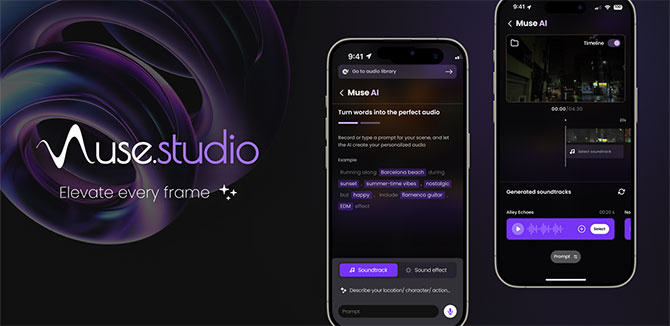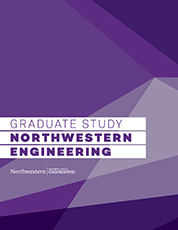Making Music Creation Easier
Pablo Gupta identified a problem facing content creators and used artificial intelligence to help them make better content more efficiently.

An amateur filmmaker once told Pablo (Sounak) Gupta (EDI '24) music defines the pulse of a scene. But if music is so powerful, how can someone without musical experience still leverage it?
Gupta pondered that question as he began his Thesis project for Northwestern's Master of Science in Engineering Design Innovation (EDI) program. It became the inspiration for muse.studio, a mobile app that creates music for video content.
His original goal was to use artificial intelligence (AI) to help beginner musicians enhance their skills and reduce production time. He realized that project would require too much technical knowledge of music to be worth it, and he also wasn't sure how much of a market there would be for that type of product.
That's when he discovered his ideal target audience: content creators.
Gupta discovered there are more than 200 million content creators worldwide and that the creator economy market size value is estimated near $250 billion. Through primary research, Gupta found many content creators begin their careers with little income, are limited to low budgets for production, and frequently capture content on their phone. In addition, many of these creators struggle to identify music to match their content.
"I wanted to empower individuals to make better content, and good music is key to making good content," he said. "Finding the music or sound effects that fit your content perfectly is really difficult. It requires patience, music editing, and hours of searching."
Gupta's research found that hours of searching is often required because many people have limited musical vocabularies and instead rely on everyday language to describe their needs, such as "I need intro music for a climate change podcast." Unfortunately, music search engines don't understand that type of description.
Gupta's muse.studio is designed to make the process far easier. The app uses generative AI to understand human language and descriptions of content so users can create specific, customized sounds for a particular scene or need. It also combines video and audio editing into a single solution that is easy to use.
The project was ambitious, and it also faced a series of challenges, particularly generating AI music based on human descriptions. Gupta's background is in computer science, but he still faced obstacles navigating the AI landscape.
"I knew what I was trying to do," Gupta said. "I did a lot of work on the technical side by finding the right AI models and software that could process language and create sounds for it. Overall, it was a huge achievement for me because I was able to showcase how a prompt like 'A dark shady street, suspense, eerie, and funky hip hop style' could create very specific, suspenseful cinematic tracks using AI."
Gupta appreciated being able to dedicate two full quarters to the project.
"Thesis gave me proof that it is possible to combine passion and problem solving," he said. "I treated Thesis as a golden opportunity to dedicate myself to something I really wanted to do. I wanted to combine my technical, art, and design skills to create something unique and innovative."

